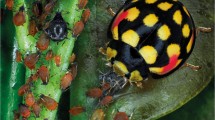Abstract
The 1989 collapse of trade relations with the former socialist bloc plunged Cuba into an economic and food crisis. Cuban farmers, scientists, and planners have responded with alternative agricultural technology to make up for imported food and Green Revolution inputs that are no longer available. A review of Cuban experience to date with biological pest control practices shows that, on the one hand, significant progress has been made that may serve as a model for other countries, while, on the other hand, there still remains a long way to go if Cuba is to create a truly sustainable agriculture. It is essential that we understand the Cuban case if we are to be concerned about ethical issues in biological control. The apparent ability of Cuba to overcome a food crisis without significant use of pesticides stretches our concept of the possible. It thus helps refute the most common argument – that we couldn't “feed the hungry” without pesticides – against taking the “ethical” position in real-world pest management policy debates.
Similar content being viewed by others
References
Altieri, M. A. (1987),Agroecology:The scientific basis of alter-native agriculture. Boulder. CO: Westview Press.
Altieri, M. A., and P. Rosset (1996), “Agroecology and the conversion of large-scale conventional systems to sustainable management,” International Journal of Environmental Studies 50: 165–185.
Altieri, M. A., P. M. Rosset, and C. I. Nicholls (1997), “Biological control and agricultural modernization: Towards the resolution of some contradictions,” Agriculture and Human Values 14(3): 303–310 (this issue).
Benjamin, M., J. Collins, and M Scott (1984), No free lunch: Food and revolution in Cuba today. San Francisco: Institute for Food and Development Policy.
Carroll, C. R., J. H. Vandermeer and P. M. Rosset (1990), Agroecology. New York: McGraw-Hill.
Castiñeiras, A., S. Caballero, G. Rego, and M. Gonz´alez (1982), “Efectividad tècnico-econ´ omica del empleo de la hormiga leona Pheidole megacephala en el control del tetu´ an del boniato Cylas formicarius elegantulus,” Cienc.Tec.Agric. (Cuba) suplemento: 103–109.
Deere, C. D. (1992), “Socialism on one island? Cuba's National Food Program and its prospects for food security.” The Hague: Institute of Social Studies, Working Paper Series No. 124.
Deere, C.D., N. Pérez, and E. Gonzales (1994), “he view from below: Cuban agriculture in the 'special period in peace-time'.” Paper presented at the 18th meeting of the Latin American Studies Association, Atlanta, GA, March 10- 12, 1994, 37 pp.
D´ý az, B. (1995), “Biotecnolog´ý a agr´ý cola: Estudio de caso en Cuba.” Paper prepared for presentation at the 1995 meeting of the Latin American Studies Association, Washington, DC.
Dlott, J., I. Perfecto, P. Rosset, L. Burkham, J. Monterrey, and J. Vandermeer (1993). “Low-input sustainable agriculture in Cuba: Management of insect pests and weeds,” Agriculture and Human Values 10(3): 9–15.
Enr´ý quez, L. J. (1994), The question of food security in Cuban socialism. Berkeley: University of California at Berkeley.
García Trujillo, R. (1993), La conversi´ on hacia una agricultura org´ anica. Havana, Cuba: Asociaci´ on Cubana de Agricultura Org´ anica.
García Trujillo, R. (1994), Integraci´ on entre la agricultura y la Ganader´ý a.SanJosé de las Lajas, Cuba: Instituto de Ciencia Animal.
García Trujillo, R. (1995), Cuba en busca de la sostenibilidad de su agricultura. Havana, Cuba: Asociaci´ on Cubana de Agricultura Org´ anica.
García Trujillo, R., and M. Monzote (1995), La ganader´ý a cubana en una concepci´ on agroecol´ ogica. Havana, Cuba: Asociaci´ on Cubana de Agricultura Org´ anica.
Gersper, P. L., C. S. Rodr´ý gues-Barbosa, and L. F. Orlando (1993), “Soil conservation in Cuba: A key to the new model for agriculture,” Agriculture and Human Values 10(3): 16–23.
Levins, R. (1991), The struggle for ecological agriculture in Cuba. Boston: Red Balloon Collective.
Levins, R. (1993), “The ecological transformation of Cuba,” Agriculture and Human Values 10(3): 52–60.
Ministerio de la Agricultura (1995), Aplicaci ´ on de biofertil-izantes en areas y cultivos de la Provincia La Habana.La Habana, Cuba: Ministerio de la Agricultura.
Pastor, M., Jr. (1992), “External shocks and adjustment in contemporary Cuba.” The International and Public Affairs Center, Occidental College, Working Paper.
Pérez, N., E. Fern´ andez, and L. V´ azquez (1995), “Concepci´on del control de plagas y enfermedades en la agricultura org´ anica.” La Habana, Cuba, II Encuentro Nacional de Agri-cultura Org´ anica 17 al 19 de mayo de 1995, Conferencias y Mesas Redondas 48–55.
Perfecto, I. (1995), “Sustainable agriculture embedded in a global sustainable future: Agriculture in the United States and Cuba,” in B. Bryant (ed.), Environmental justice: Issues, policies and solutions. Washington, DC: Island Press.
Rosset, P. (1994), “Rural report: The greening of Cuba,” NACLA Report on the Americas 18(3): 37–41, 44.
Rosset, P. M., and M. A. Altieri (1997), “Agroecology versus input substitution: A fundamental contradiction of sustainable agriculture,” Society and Natural Resources 10(3): 283–295.
Rosset, P., and M. Benjamin (1994a), The greening of Cuba: A national experiment in organic agriculture. Sydney: Ocean Press.
Rosset, P. M., and M. Benjamin (1994b), “Two steps backward, one step forward: Cuba's national policy for alternative agriculture,” International Institute for Environment and Development Gatekeeper Series 46: 1–26.
Rosset, P., and M. Benjamin (1994c), “Cuba's nationwide conversion to organic agriculture,” Capitalism, Nature, Socialism 5(3): 79–97.
SANE (1994), Creating agroecological lighthouses around the world: A strategic plan to promote capacity building in sustainable agriculture. Sustainable Agriculture Networking and Extension, UNDP-INT/93/201.
Seminario Cient´ý fico Internacional de Sanidad Vegetal (1987), Resumenes. La Habana, September 22- 25, 1987.
Shishkoff, N. (1993), “Plant diseases and their control by biological means in Cuba,” Agriculture and Human Values 10(3): 24–30.
Vandermeer, J. (1989), The Ecology of intercropping.Cambridge: Cambridge University Press.
V´ azquez Vega, H., J. G. Michelena, and M. D´ý az Rodr´ýguez (1995), El Empleo de Medios Biol ´ ogicos para el Control de Plagas en la Agricultura, Provincia la Habana. La Habana, Cuba: Ministerio de Agricultur
Author information
Authors and Affiliations
Rights and permissions
About this article
Cite this article
Rosset, P.M. Cuba: Ethics, biological control, and crisis. Agriculture and Human Values 14, 291–302 (1997). https://doi.org/10.1023/A:1007433501248
Issue Date:
DOI: https://doi.org/10.1023/A:1007433501248




